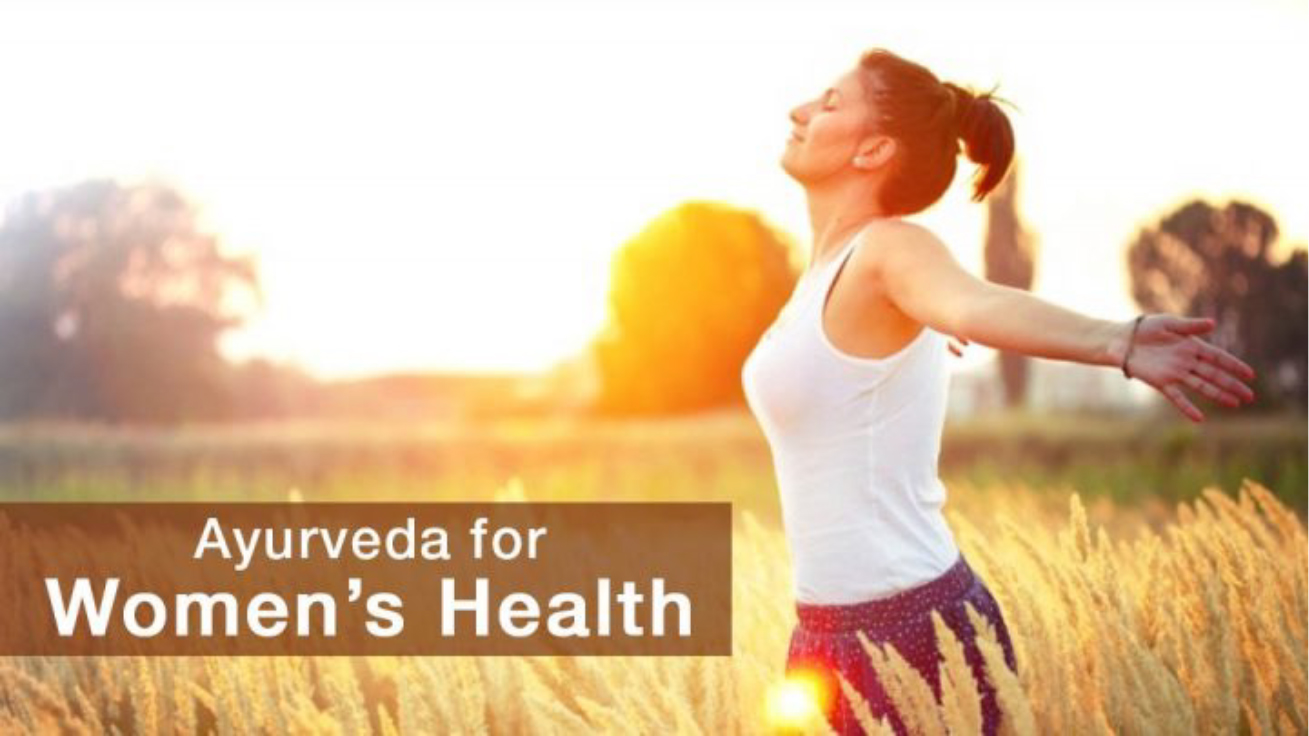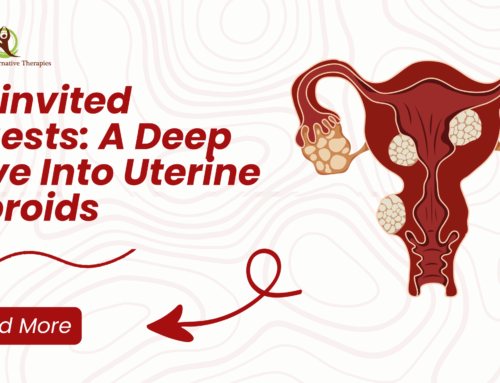Ayurveda and Women’s Health
In March we celebrate International Women’s Day
Every March 8 is International Women’s Day. It’s a global day to recognize and celebrate women’s and girls’ social, economic, cultural, and political achievements. It’s also a time to raise awareness of the progress made towards achieving gender equality and the work remaining to be done.
The beginnings of International Women’s Day can be traced back to the early twentieth century. It emerged from the activities of labor movements in North America and Europe and reflected a growing call for women’s equal participation in society. International Women’s Day first took place on March 19, 1911, in Austria, Denmark, Germany, and Switzerland. That day, over a million women and men attended public events to show their support. Other countries began to observe and celebrate this day in the years that followed. The United Nations recognized 1975 as International Women’s Year and began celebrating March 8 as International Women’s Day. 1
Women care about their health for a multitude of reasons, including:
- Physical well-being: Women prioritize their health to maintain physical fitness, prevent illness, and manage existing health conditions. They understand that good health enables them to fulfill their daily responsibilities and enjoy life to the fullest.
- Reproductive health: Women are concerned about their reproductive health, including menstruation, fertility, pregnancy, childbirth, and menopause. They seek information and support to navigate these aspects of their health and make informed decisions about family planning and reproductive choices.
- Mental and emotional wellness: Women prioritize their mental and emotional well-being, recognizing the importance of managing stress, anxiety, depression, and other mental health challenges. They seek support through therapy, mindfulness practices, self-care activities, and nurturing relationships.
- Preventive care: Women understand the importance of preventive healthcare, including regular check-ups, screenings, and vaccinations to detect and address health issues early. They take proactive steps to maintain their health and prevent chronic diseases.
- Quality of life: Women prioritize their health to enhance their quality of life and maintain independence as they age. They recognize that investing in their health now can lead to a more fulfilling and active lifestyle in the future.
- Caring for others: Many women are caregivers for their families, children, and aging parents. They prioritize their health to ensure they have the energy, strength, and resilience to care for others effectively.
- Empowerment and advocacy: Women advocate for their health rights and access to healthcare services, including reproductive healthcare, maternal care, mental health services, and gender-sensitive care. They strive to break down barriers to healthcare and address disparities in healthcare access and outcomes.
Overall, women care about their health because it impacts every aspect of their lives, from their physical well-being and reproductive health to their mental and emotional wellness, relationships, and ability to fulfill their roles and responsibilities in society. By prioritizing their health and advocating for their needs, women empower themselves and contribute to creating healthier, more equitable communities.
The woman’s body is diverse and sensitive, so that sustainable wellbeing and disease prevention initiatives are needed to increase the health of women. Therefore, the message to young people and women today is to look after their own health more and monitor it by encouraging safe living. Because of a lack of environmental unity, diseases are caused. The onset of these diseases is insidious and takes time to evolve, and it is impossible to recover until they occur. Bad eating habits, physical inactivity, mis corporal posture and a troubled biological clock are the essential factors leading to these illnesses. Many women are susceptible to different illnesses due to their employment and lifestyle.
AYURVEDA AND WOMEN’S HEALTH
Ayurveda, the ancient East Indian system of medicine, offers a holistic approach to women’s health, focusing on achieving balance and harmony within the body, mind, and spirit. Here’s how Ayurveda addresses women’s health:
- Dosha balance: Ayurveda identifies three doshas (Vata, Pitta, and Kapha) that govern different aspects of the body’s functioning. Women’s health is believed to be influenced by the balance of these doshas. Ayurvedic practitioners assess an individual’s dosha constitution and imbalances to recommend personalized diet, lifestyle, and herbal remedies to restore equilibrium.
- Menstrual health: Ayurveda recognizes the menstrual cycle as a natural rhythm of the body and emphasizes maintaining hormonal balance and supporting reproductive health. Practices such as following a nourishing diet, practicing self-care rituals, and managing stress are integral to promoting regular and healthy menstrual cycles.
- Fertility support: Ayurveda offers guidance for supporting fertility and reproductive health through lifestyle modifications, dietary recommendations, herbal supplements, and detoxification practices. It emphasizes the importance of preparing the body and mind for conception by optimizing overall health and vitality.
- Pregnancy and postpartum care: Ayurveda provides guidelines for promoting a healthy pregnancy and supporting the well-being of both the mother and baby during the prenatal, antenatal, and postnatal periods. This includes dietary recommendations, prenatal massage, gentle exercises, and postpartum rejuvenation practices.
- Menopausal health: Ayurveda views menopause as a natural transition in a woman’s life and offers supportive therapies to manage symptoms such as hot flashes, mood swings, and vaginal dryness. Herbal remedies, dietary adjustments, stress management techniques, and lifestyle modifications are recommended to help women navigate this phase with greater ease.
- Holistic wellness: Ayurveda emphasizes the interconnectedness of body, mind, and spirit in maintaining optimal health and well-being. Women are encouraged to cultivate balance in all aspects of their lives, including nutrition, exercise, sleep, relationships, and emotional well-being, to support overall vitality and longevity.
Ayurveda provides several schemes in the management of lifestyles including Dinacharya (daily regimen), Ritucharya (seasonal regimen), Panchakarma (5 treatments for detoxification and bio-purification), Rasayana (rejuvenation). The Sadvritta and Aachara Rasayana (code of practice) are extremely critical for a safe and happy psychological outlook to be maintained. The inclusive use of all these methods of therapy has a significant impact on lifestyle conditions. In addition, the patent, not only to prevent diseases, but also to promote protection and cure diseases, of organ specific Rasayana herbs.
Ayurvedic Practices for Women’s Health3
Here are some practices recommended by Ayurveda for better women’s health.
Abhyanga
Abhyanga, the Ayurvedic practice of self-massage, is one of the most suitable ways for women to tend to their minds and bodies. The gentle ritual involves the process of applying warm oil to the body. It helps beyond just relaxation and offers numerous benefits.
The process also helps with improving blood circulation and soothing the nervous system. Abhyanga is found to be extremely beneficial to women experiencing discomfort or menopausal symptoms.
The treatment also helps with lubricating the joints and maintaining healthy skin. Abhyanga fosters a deep connection with one’s body, enhancing self-awareness. It can be done as a daily practice or whenever you need some self-care.
Yoga and Pranayama for Women
Yoga and pranayama (breathing exercises) are two of the powerful tools recommended by Ayurveda for women’s well-being. These practices help balance the body and mind, making them essential for maintaining emotional and physical health.
Yoga postures, or asanas, can alleviate common issues like menstrual cramps and back pain. They improve flexibility, strength, and posture, benefiting women of all ages. Meanwhile Pranayama, on the other hand, focuses on breath control.
And yes, practicing these techniques can really help you out. They are an excellent stress buster and calm your mind. These practices are easily adaptable to any age group and can easily be done with or without the help of an Ayurvedic expert.
Herbal Remedies for Common Women’s Health Issues
Ayurveda is a treasure trove of herbal remedies for addressing common women’s health issues. There are many herbs that provide immense health benefits for women. Herbs like Ashwagandha and Shatavari are known to support hormonal balance, making them great choices for menstrual irregularities and menopausal symptoms. Home remedies like turmeric and ginger are known to be excellent help with digestion and inflammation issues. They are often cited as the underlying causes of various health concerns in women.
A study finding suggest that Ashwagandha root extract can be a safe and effective option to relieve mild to moderate climacteric symptoms during perimenopause in women.4
In Ayurvedic medicine, ashwagandha is an adaptogen and is claimed to promote longevity, improve memory, enhance fertility for both males and females, to balance aggravated ‘Vata’ (as a nervine tonic and sedative), as a sleep aid, and to relieve general debility, especially during convalescence or old age. 5
Asparagus Racemosus is generally known as Shatavari in Indian traditional system (Ayurveda). It is a well-known herb in Ayurveda. It is grown in the tropical areas of India, Sri Lanka, and Himalayas. The plant is utilized generally as tonic for a variety of diseases. It is also considered as a female reproductive tonic. The phytochemicals of the plant are widely distributed with many therapeutical properties. The main therapeutic use of the plant Shatavari is on the reproductive system of women and promotes learning and memory.6
The usage of herbal teas like chamomile and peppermint can soothe stress and anxiety.
Peppermint decoctions are recommended not only for stress, anxiety, also for dysmenorrhea (painful periods), during pregnancy for the morning sickness (always consult with your health practitioner), for skin disorders, to improve digestion, for cystitis, to improve blood circulation and blood pressure.9
In summary, the consequences of the current study propose an efficacy of Chamomile in the treatment PMS. This review has demonstrated that the chemical ingredients of the chamomile drug possess anti-inflammatory, antispasmodic, sedative, and anti-anxiety properties that significantly impact on painful menstruation, anxiety, and psychological problems in the women of PMS sufferers.8
For lactating mothers, fenugreek seeds can help by aiding milk production. Ayurvedic herbs and remedies are natural and gentle, providing an alternative or complementary approach to conventional medicine.
Fenugreek is used for gynecological problems in different traditional medicines, including Persian medicine and Ayurveda. It has also been widely used in ethnomedicine of different parts of the world for women’s health. Several clinical studies confirm the beneficial effects of fenugreek in breastfeeding, dysmenorrhea, polycystic ovary syndrome, and menopause. There are limited studies on the use of this plant in ovarian diseases, infertility, and vaginal atrophy.7
Fenugreek is one of the most important medicinal plants as a CAM remedy for women’s problems. It is a well-known and globally available plant that has been extensively studied in gynecological problems (Aswar and Rai, 2022).7
Meditation and Mindfulness
In today’s modern life stress and anxiety have become a part of a women’s lie So, Ayurveda recognizes the importance of mental well-being, and meditation and mindfulness techniques play a crucial role in achieving it.
Meditation can be defined as the practice of centering your body and mind to train attention and awareness. Such practices will help women to reduce stressful emotions, and boost self-confidence. Meanwhile, Mindfulness encourages being present at the moment without judgment. It can help women manage negative emotions, improve their relationships, and find inner peace.
Both meditation and mindfulness can be successfully incorporated into daily routines, making them accessible tools for women to manage the demands of modern life while staying grounded and centered. Incorporating these Ayurvedic practices into your life can promote overall well-being and empower women to take control of their health naturally and holistically.
General Ayurvedic tips for women’s health
Keep Vata Dosha in Balance
It’s essential for women to keep their Vata dosha in balance for better health because imbalances in Vata can affect their reproductive health, menstrual cycles, and emotional stability. When Vata is excessive, it can lead to irregular periods, hormonal imbalances, anxiety, and digestive problems.
To maintain Vata balance, women can follow Ayurvedic guidelines, such as adopting a nourishing and warm diet, practicing relaxation techniques like yoga and meditation, getting enough rest, and staying hydrated.
Make time for Yourself.
When was the last time you scheduled some ‘me’ time? If your answer is ‘not yet’, then it’s certainly time to change it. You can and have to set aside some time for activities that will make you happy. Women often handle and juggle many responsibilities that take a toll on them. So, taking time for oneself will allow individuals, especially women to recharge, relax, and reduce the effects of stress. It’s just like hitting the snooze button for the mind and body. It’s a much-needed necessary step.
Ayurveda offers a comprehensive approach to women’s health that addresses the unique physiological and emotional needs of women at every stage of life, promoting holistic wellness and vitality. However, it’s essential for women to consult with qualified Ayurvedic practitioners and integrate Ayurvedic practices alongside conventional healthcare when addressing specific health concerns.
References
- https://women-gender-equality.canada.ca/en/commemorations-celebrations/international-womens-day.html
- https://utkarshayurveda.co.in/ayurveda-news/lifestyle-disorders-in-women-today-how-ayurveda-can-cure-it
- https://www.ayurvedacollege.net/blogs/ayurveda-and-women-s-health-empowering-women-through-natural-healing
- Sriram Gopal, Ashutosh Ajgaonkar, Padmaja Kanchi, Aditi Kaundinya, Vaishali Thakare, Sanjaya Chauhan, Deepak Langade, Effect of an ashwagandha (Withania Somnifera) root extract on climacteric symptoms in women during perimenopause: A randomized, double-blind, placebo-controlled study. 22 September 2021 https://doi.org/10.1111/jog.15030
- Xin Yi Lim, Joanne Barnes, Ashwagandha Journal of Primary Health Care https://doi.org/10.1071/HC23172
Submitted: 18 December 2023 Accepted: 8 January 2024 Published: 8 February 2024
- Shifali Thakur, Hemlata Kaurav, Gitika Chaudhary. Shatavari (Asparagus Racemosus) – The Best Female Reproductive Tonic. International Journal of Research and Review DOI: https://doi.org/10.52403/ijrr.20210511 Vol.8; Issue: 5; May 2021 Website: ijrrjournal.com
- Elham Akhtari, Mahboobe Ram, Syed Mohd Abbas Zaidi, André Mesquita Marques, Roja Rahimi, Roodabeh Bahramsoltani,Fenugreek (Trigonella foenum-graecum L.) in Women’s Health: A Review of Clinical Evidence and Traditional Use,Journal of Herbal Medicine,Volume 43,2024,100816,ISSN 2210-8033,https://doi.org/10.1016/j.hermed.2023.100816
- Khalesi ZB, Beiranvand SP, Bokaie M. Efficacy of Chamomile in the Treatment of Premenstrual Syndrome: A Systematic Review. J Pharmacopuncture. 2019 Dec;22(4):204-209. doi: 10.3831/KPI.2019.22.028. Epub 2019 Dec 31. PMID: 31970017; PMCID: PMC6970572.
- Tоxirоv Bаxtiyоr Bаxshullаyеviсh, Kеnjаyеvа Nоzimа Jоbirоvnа. MЕDIСINАL PRОPЕRTIЕS ОF THЕ MINT PLАNT SCIENCE AND INNOVATION INTERNATIONAL SCIENTIFIC JOURNAL VOLUME 2 ISSUE 4 APRIL 2023 UIF-2022: 8.2 | ISSN: 2181-3337 | SCIENTISTS.UZ.




